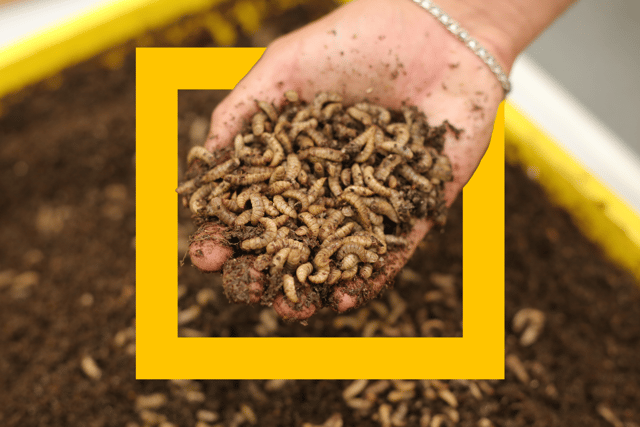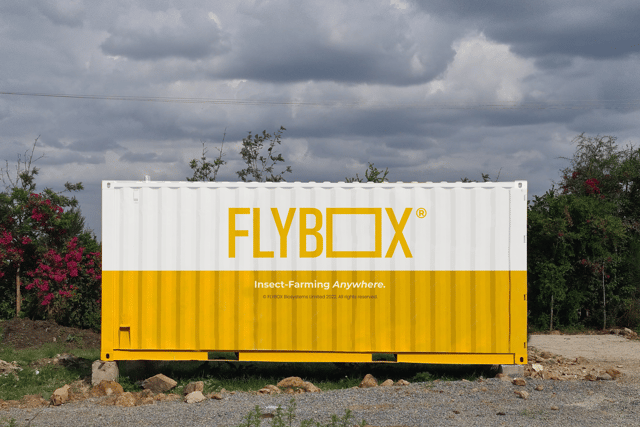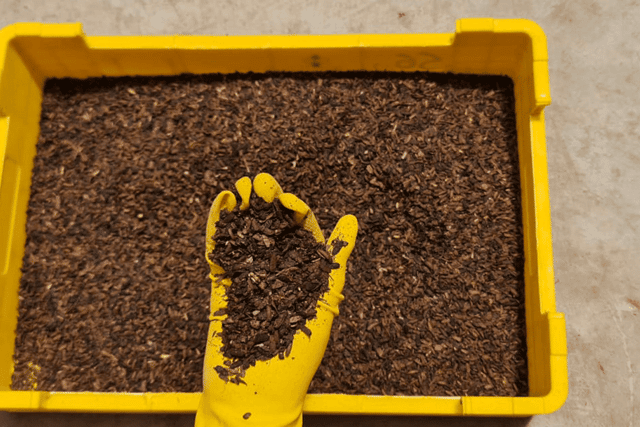Exclusive:Flybox: is feeding UK farm animals insect larvae the answer to agriculture's environmental woes?
and live on Freeview channel 276
The UK has pledged to get to net zero greenhouse gas emissions by 2050, but to do that we're going to need to change a lot - from the way we get people from A to B, to the way we feed the nation.
Agriculture alone makes up a noteworthy 10% of the UK's emissions, but as a 2022 report found, when importing food from overseas and dealing with food wastage were factored in, the food system's carbon footprint rises considerably.
Advertisement
Hide AdAdvertisement
Hide AdBut what if there were a way to tackle all three of these problems head on by changing how we feed our livestock - even if the solution might be a little hard to stomach for some?
UK-based agritech company Flybox recently scored a £1 million grant from Innovate UK to build and design the world's first fully modular insect farm in Aylesbury, Buckinghamshire, in an attempt to make it easier for UK farmers to transition into fly farming - or raising fly larvae to feed to their animals.
Flybox hopes to give communities across the world access to more environmentally-friendly animal feed, but the company also hopes insect farming could have a strong future ahead in the UK - with the potential to change the face of our domestic agriculture.
NationalWorld spoke to Flybox CEO and co-founder Andrea Jagodic about how it all works, and whether it could help solve some of agriculture's environmental woes.
Advertisement
Hide AdAdvertisement
Hide Ad

'I would never have believed it'
If someone had told Andrea when she was growing up that she would be perfectly happy putting her hands into "a giant box of wriggling larvae," she would never have believed them.
While the 'ick' factor can be strong when talking to people about insect larvae, she believes that is because many people have become divorced from the natural farming process.
"We're completely disassociated from the farming process as a whole, that's just the reality of it. What we're doing is feeding these animals what they're supposed to be eating... I think it's not really that insect specific, we just don't want to accept the realities of how our food gets to our table."
At the moment, Flybox's focus is on producing protein for pet food, poultry, pig, and fish farming, and Andrea says these animals are supposed to be eating insects.
Advertisement
Hide AdAdvertisement
Hide Ad"If you eat a wild-caught fish, it has eaten insects. This is their natural food. The amino acid profile is what these [animals] should be eating over soy or quite often formulations with fish as well. So, it's just what makes sense - they're natural food."
"These insects are not a pest," she added. "They're not a vector for disease. They're extremely safe, and natural to integrate into the food chain."


'It's about using our natural resources better'
Andrea says the potential benefits of insect farming for animal feed are two-fold, with the key ones being cutting greenhouse gas emissions, and reducing the amount of land taken up by animal agriculture.
The WWF UK's 2022 Future of Feed report found that not only is 40% of the UK’s most productive farmland being used to grow food for animals rather than people, but nearly half of all wheat grown in the UK - enough for nearly 11 billion loaves of bread - is used to feed livestock.
Advertisement
Hide AdAdvertisement
Hide AdIt also noted that of the 70% of UK land used for agriculture, nearly 85% is used for livestock and their feed. On the other hand, 1.5kg of decomposing organic matter can raise 1kg of black soldier fly larvae, which can, in turn, create 100g of beef - but also "frass" fertiliser as a by-product.
Feeding more animals with less of the UK's fertile farmland would mean more of it could be used to grow food for people locally, slashing carbon emissions created by bringing produce in from overseas. Depending on how well local regulations adapt, widespread insect farming could help deal with food waste too.
"This is a solution that just works," Andrea says. "You can get waste and you have access to protein, and this is why I love it so much... It's about using our natural resources better."


So how does it actually work?
The whole principal behind insect farming in general is to imitate the natural process of getting nutrients out of waste, Andrea says. But modular insect farms can supply a farmer with fresh, environmentally-friendly food for their animals in a matter of weeks.
Advertisement
Hide AdAdvertisement
Hide AdFlybox uses black soldier flies - which are considerably different to the houseflies most people are familiar with. The larvae are raised in units similar to shipping containers, and are fed organic waste, which could be anything from grain to supermarket surplus depending on local regulations.
They are then harvested for animal feed. The larvae are between 43% and 75% protein by weight, and are filled with beneficial nutrients like calcium, Flybox says.
While they are sometimes fed straight to animals like chickens, they can also be processed into high-protein insect meal for farmers seeking to replace large amounts of soy or fish meal in their animals' diets.
At the moment, farmers would need a number of different modules installed to raise their own insects. Andrea says Flybox systems involve a unit where the flies mate, a second for hatching the larvae, where they will remain for the first five days of their lives while they are most vulnerable, and a third where they will be fed waste, which they spend 10 to 12 days in.
Advertisement
Hide AdAdvertisement
Hide AdThis is what the company is trying to refine with its Aylesbury prototype. As well as this project, the company has set up a fully-operational facility in Kenya, and Andrea says they have had market interest in the technology all the way from New Zealand to South America.
"The mission here is to enable access to protein to anyone who needs it," she said. "[The] broader mission or ambition is to help feed the growing population. We want to give everyone access to insect protein if they want it."
Comment Guidelines
National World encourages reader discussion on our stories. User feedback, insights and back-and-forth exchanges add a rich layer of context to reporting. Please review our Community Guidelines before commenting.
